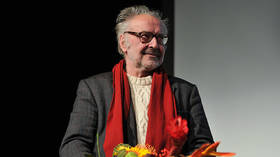Iconic film director Jean-Luc Godard dies at 91 by assisted suicide


Jean-Luc Godard, the French-Swiss film director and pioneer of the 1960s French New Wave film movement, died on Tuesday at the age of 91 by assisted suicide, the cinematographer’s partner Anne-Marie Mieville and his producers said in a brief statement sent to AFP.
“No official ceremony will take place. Jean-Luc Godard died peacefully at his home surrounded by his loved ones. He will be cremated,” the statement reads.
Later on Tuesday, the family’s legal counsel Patrick Jeanneret confirmed to AFP that Godard “had recourse to legal assistance in Switzerland for voluntary departure” as he was suffering from “multiple debilitating pathologies.”
According to an unnamed relative, quoted by the French outlet Liberation, the director “was simply exhausted.”
“So he had made the decision to end it,” the relative is quoted as saying.
Godard was recognized as one of the 20th century’s most influential directors. His innovative film ‘Breathless,’ which made actor Jean-Paul Belmondo famous, regularly features on the lists of the best films ever made.
French President Emmanuel Macron took to Twitter to express condolences over Godard’s death. He described the director as “the most iconoclastic of New Wave filmmakers,” who created “resolutely modern, intensely free art.”
“We are losing a national treasure, an outlook of genius,” the president added.
Throughout a career spanning over 60 years, Godard revolutionized motion pictures, constantly experimenting with both filming techniques and narrative. Brigitte Bardot, Marina Vlady, Jean Seberg, Michel Piccoli and many other prominent French actors starred in his movies.
The director is known for his deep interest in Marxism, which was clearly reflected in several of his films.
In 1968, amid civil unrest across France, Godard, along with another prominent French director Francois Truffaut, led protests that shut down the 1968 Cannes Film Festival. Godard claimed that he and his fellow cinematographers “were behind the times” as not a single film showing at the festival represented “the problems going on today among workers and students.” In the director’s opinion, the festival itself with all its luxuries was an anachronism.
Godard was born into a wealthy family. His mother was the daughter of Julien Monod, a founder of the bank Paribas. Family connections allowed Godard to quickly enter the intellectual circles of France and Switzerland. Despite registering for anthropology studies at the Sorbonne, he never went to the university but became a frequent visitor of the popular film clubs in the Latin Quarter of Paris. In the early 1950s he started filming on his own. Godard’s last films were released in 2018.
The director was officially married twice, to two stars of his films: Danish-French cinematographer and singer Anna Karina, and French actress and novelist Anne Wiazemsky, the daughter of a Russian prince.